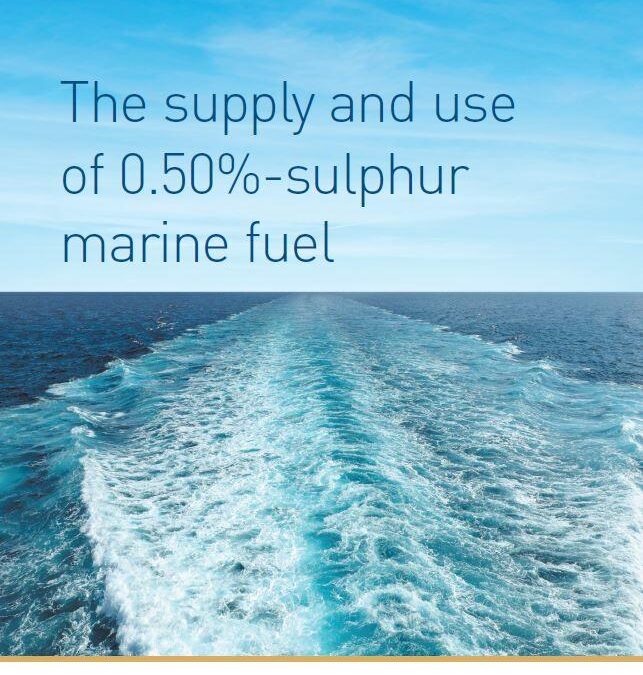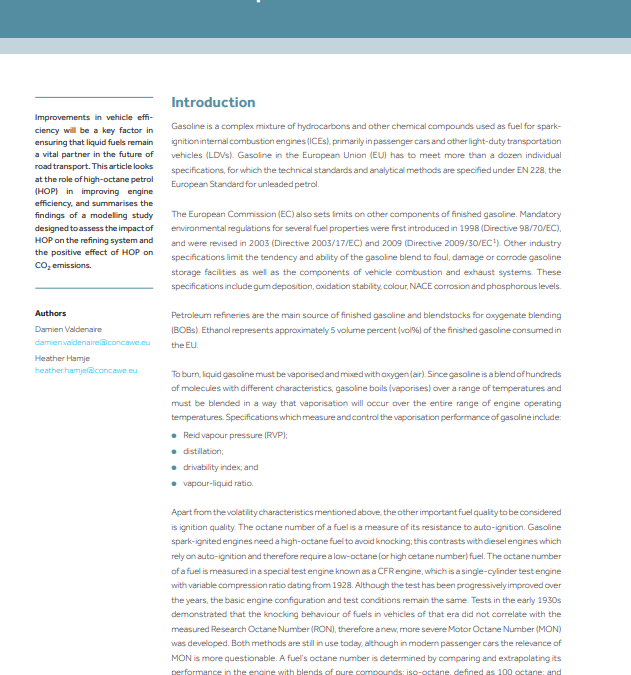

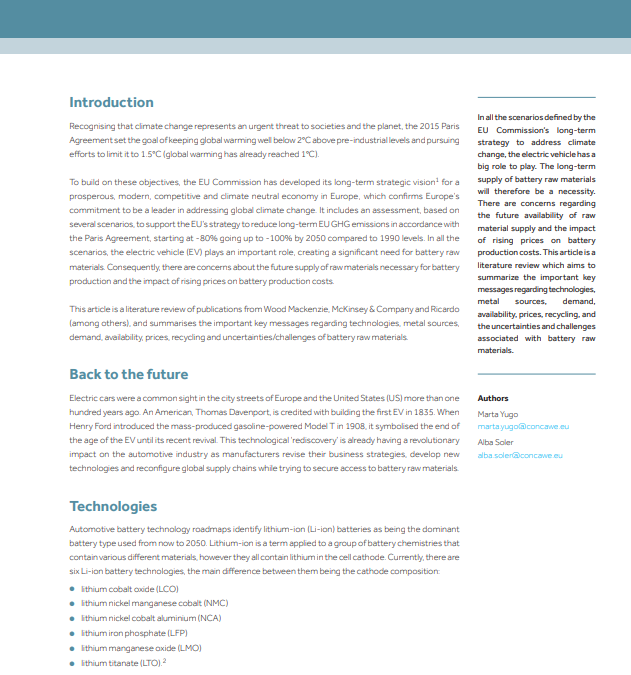
Outlook for battery raw materials (Concawe Review 28.1)
Recognising that climate change represents an urgent threat to societies and the planet, the 2015 Paris Agreement set the goal of keeping global warming well below 2°C above pre-industrial levels and pursuing efforts to limit it to 1.5°C (global warming has already...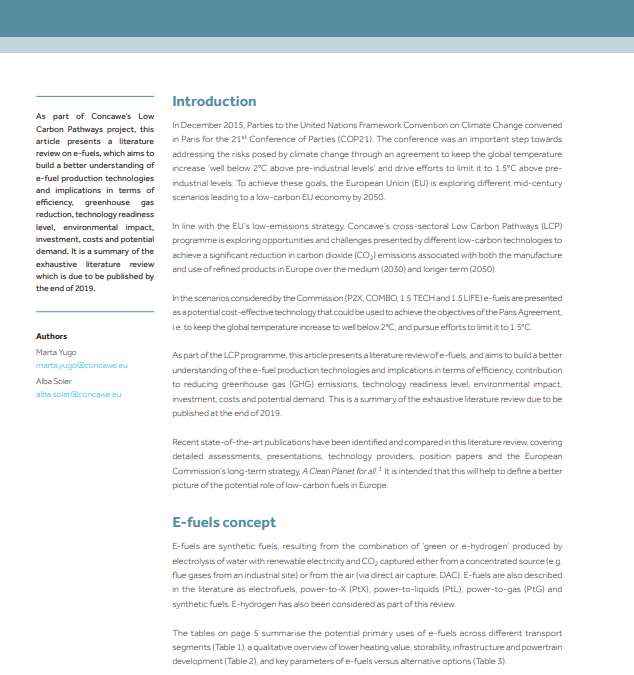
A look into the role of e-fuels in the transport system in Europe (2030–2050) (Concawe Review 28.1)
In December 2015, Parties to the United Nations Framework Convention on Climate Change convened in Paris for the 21st Conference of Parties (COP21). The conference was an important step towards addressing the risks posed by climate change through an agreement to keep...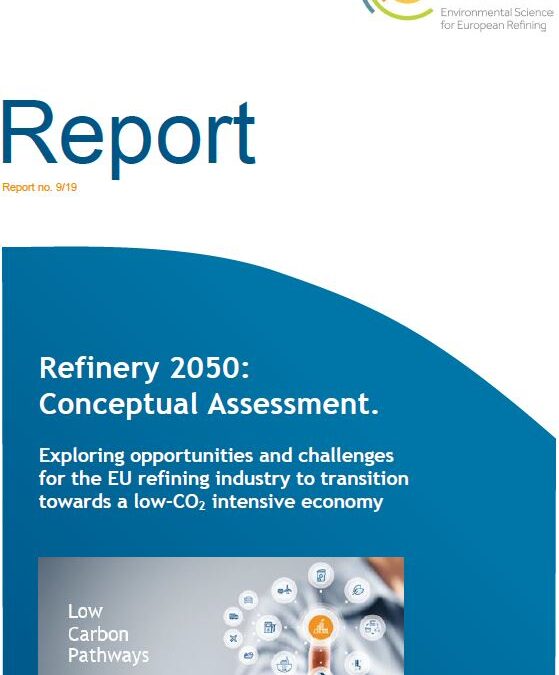
Refinery 2050: Conceptual Assessment. Exploring opportunities and challenges for the EU refining industry to transition towards a low-CO2 intensive economy
Report no. 9/19: This report is the second in a series of publications that explore opportunities and challenges for EU refineries to integrate technologies and feedstocks that would reduce the fossil carbon intensity of petroleum products. The first Concawe report...